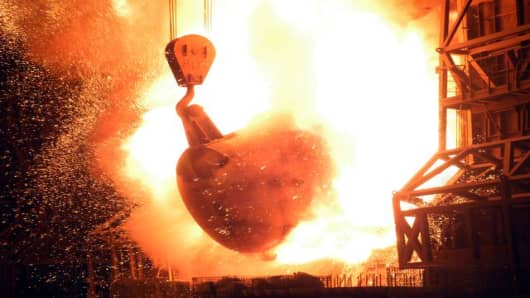China stepped up its campaign against the Anglo-Australian mining giant Rio Tinto on Wednesday, saying the company had bribed virtually every one of China’s big steel makers.
The sweeping allegation, published on the front page of China Daily, the country’s official English-language newspaper, further inflamed a case that has rocked the country’s steel industry, strained relations between China and Australia and worried multinational companies doing business here.
The case began more than a week ago, when Chinese authorities detained four Rio Tinto employees, including an Australian national, on suspicion of espionage, stealing state secrets and harming the nation’s economic interests and security.
On Wednesday, high-level officials of both the Australian and United States governments expressed concern. Gary Locke, the United States secretary of commerce, who is visiting Beijing this week, told CNN that he would raise the case directly with top Chinese leaders, including Prime Minister Wen Jiabao.
In its report, China Daily, which regularly publishes the government’s official version of events, said Rio Tinto employees bribed executives from 16 Chinese steel companies, all members of the China Iron and Steel Association, to get access to confidential industry data. The paper attributed the allegation to an unidentified “industry insider” and did not identify the 16 companies.
A Chinese government-controlled Web site said last week that Rio Tinto employees had bribed Chinese steel executives to gain access to government documents that could have given Rio Tinto an edge in its annual iron ore negotiations with China’s state-owned steel mills.
But Wednesday’s report is the first time a government publication has alleged that many of the country’s biggest steel companies may be involved.


